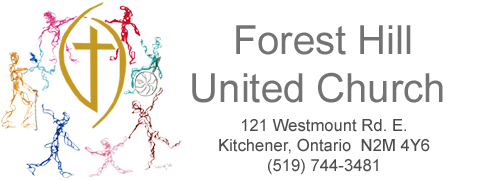Hide & Seek
September 14, 2025
By the time this passage appears in the gospel of Luke Jesus has built a community of followers that include a wide variety of people within the social and religious circles of Israel. It might surprise you to know that some of those followers were Pharisees and Sadducees. You see Jesus connects with them out of a deep shared love of the faith, handed down from Abraham and Sarah through Moses, David, and all the prophets.
Because of this, Jesus actually agrees with the Pharisees and the Sadducees about who are “the lost” of Israel. The tax collectors, the prostitutes, the criminals, those who had sickness and those who did not care for the practices of the faith. These two parables that are in the reading are not about they who are the lost, because Jesus and the Pharisees agreed on who the lost are. Instead, the parables propose to tell us the way that God treats the lost, of Israel, and by implication how we, who believe ourselves to be found, should treat them.
The interesting thing about these stories is that Jesus doesn’t start with a theological argument. No, Jesus begins by making his argument, intensely and unavoidably personal. Which one of you has never lost a sheep or a precious coin? How about your car keys, your passport, date book, or heaven forbid cell phone? Didn’t you search desperately and passionately, for that which you consider valuable? There is the rub. God seeks the lost because God sees their value. Have you ever lost your child at a mall, or the fairgrounds, or the beach? Even if it was just for a few fleeting moments? Distance or darkness doesn’t matter. The seeker will look by lamp light and on their hands and knees, if necessary, until that precious thing or person that was lost, is found. This is way of God. God sets the tone and the example. If we know that someone is lost, then what are we going to do about it? And what’s more we might not be so innocent in folks becoming lost. A sheep might wander away, but a coin has no method of locomotion. As my mother used to say, “Well it didn’t grow legs and walk away, did it?” We have all had a hand in creating and maintaining structures that work for many but not all within our population. People get lost in our society and they need someone to seek them out. So, the parable is a warning to we who see ourselves as found, safe from judgement, secure in our holiness or mainline acceptability that we dare not judge others. Which is why Jesus wants to engage the Pharisees at a heart level because it is almost impossible to treat others heartlessly when your heart is already open.
This week I got my regular email blog from Rev. Cameron Trimble. She talks about spending time with a couple of ten-year-olds at the lake. One of those kids when talking about their new school mentioned almost off handedly that, “Our teachers are always saying, ‘Get your lives together!” I assume when the kids were getting a little excited or have shown up without homework in hand. Rev. Trimble thought “Can you imagine a world so disoriented that we are telling ten-year-old children to get their lives together?” Children born, in the midst, of a pandemic, ecological collapse, political unrest, AI acceleration, social media addiction, and social systems unraveling all around them. Yet, they are the ones who have to get their lives together. All around them are adults who are dysregulated, defensive and disconnected. And yet we expect our children or grandchildren to hold it together.
Trimble goes on to say that she asked a friend, who as a teacher that works with teens, about the qualities she looks for in volunteers. Without hesitation she said “I would give anything for people with calm regulated nervous systems. Elders who could just be present, grounded and safe. Adults who don’t collapse under a little pressure. Adults who don’t try and hide but who will stay present in the room when things get a little messy. Adults who are willing to hold space for grief, wonder, rage, and joy- all at once.”
It struck me that what this teacher was looking for was adult volunteers who would allow themselves to be found by children who were feeling lost. And ultimately that is the purpose of the church. To be the living presence of Christ in the community. Which means being a place and people who are grounded, grateful, gracious, and generous. A community of people who know what it is like to be lost and the joy of being found. And nothing, not even death will stop us from being that people and that place.
Amen!

